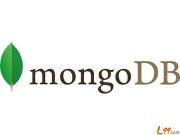在Java开发中,由Java对转换成JSON或XML的第三方库有很多,之前文章中就有过JSONLib方式转换,Jackson方式转换,JSONP转换等等,这篇文章就来演示一下如何适合用Google的Gson库实现JSON之间的互相转换

首先自定义一个Class类
public class Student {
public int id;
public String nickName;
public int age;
public ArrayList<String> books;
public HashMap<String, String> booksMap;
}
案例一,案例二,案例三都是把Java的Class对象使用Gson转换成Json的字符串
案例一:仅包含基本数据类型的数据结构
Gson gson = new Gson();
Student student = new Student();
student.id = 1;
student.nickName = "X-rapido";
student.age = 22;
student.email = "123456@qq.com";
Log.e("MainActivity", gson.toJson(student));
输出结果是 :
{"email":"123456@qq.com","nickName":"X-rapido","id":1,"age":22}
案例二:除了基本数据类型还包含了List集合
Gson gson = new Gson();
Student student = new Student();
student.id = 1;
student.nickName = "X-rapido";
student.age = 22;
student.email = "123456@qq.com";
ArrayList<String> books = new ArrayList<String>();
books.add("数学");
books.add("语文");
books.add("英语");
books.add("物理");
books.add("化学");
books.add("生物");
student.books = books;
Log.e("MainActivity", gson.toJson(student));
输出结果是 :
{"books":["数学","语文","英语","物理","化学","生物"],"email":"123456@qq.com","nickName":"X-rapido","id":1,"age":22}
案例三:除了基本数据类型还包含了List和Map集合
Gson gson = new Gson();
Student student = new Student();
student.id = 1;
student.nickName = "X-rapido";
student.age = 22;
student.email = "123456@qq.com";
ArrayList<String> books = new ArrayList<String>();
books.add("数学");
books.add("语文");
books.add("英语");
books.add("物理");
books.add("化学");
books.add("生物");
student.books = books;
HashMap<String, String> booksMap = new HashMap<String, String>();
booksMap.put("1", "数学");
booksMap.put("2", "语文");
booksMap.put("3", "英语");
booksMap.put("4", "物理");
booksMap.put("5", "化学");
booksMap.put("6", "生物");
student.booksMap = booksMap;
Log.e("MainActivity", gson.toJson(student));
输出结果是 :
{"books":["数学","语文","英语","物理","化学","生物"],"booksMap":{"3":"英语","2":"语文","1":"数学","6":"生物","5":"化学","4":"物理"},"email":"123456@qq.com","nickName":"X-rapido","id":1,"age":22}
案例四:把案例三输出的字符串使用Gson转换成Student对象
Gson gson = new Gson();
Student student = new Student();
student.id = 1;
student.nickName = "X-rapido";
student.age = 22;
student.email = "123456@qq.com";
ArrayList<String> books = new ArrayList<String>();
books.add("数学");
books.add("语文");
books.add("英语");
books.add("物理");
books.add("化学");
books.add("生物");
student.books = books;
HashMap<String, String> booksMap = new HashMap<String, String>();
booksMap.put("1", "数学");
booksMap.put("2", "语文");
booksMap.put("3", "英语");
booksMap.put("4", "物理");
booksMap.put("5", "化学");
booksMap.put("6", "生物");
student.booksMap = booksMap;
String result = gson.toJson(student);
Student studentG = gson.fromJson(result, Student.class);
Log.e("MainActivity", "id:" + studentG.id);
Log.e("MainActivity", "nickName:" + studentG.nickName);
Log.e("MainActivity", "age:" + studentG.age);
Log.e("MainActivity", "email:" + studentG.email);
Log.e("MainActivity", "books size:" + studentG.books.size());
Log.e("MainActivity", "booksMap size:" + studentG.booksMap.size());
输出结果是 :
id:1
nickName:X-rapido
age:22
email:123456@qq.com
books size:6
booksMap size:6
通过这4个案例我解决你一定就把Gson的基本用法学会了,当然我们的需求可能需要把List或者Map等集合的泛型换成我们自定义个class,这也是可以解决的,请看案例
案例五:泛型的使用
public HashMap<String,Book> booksMap;
public class Book{
public int id;
public String name;
}
把booksMap转换成字符串和上面的案例是一样的,但是booksMap的Json字符串换成booksMap的实例对象就有点不同了,因为booksMap有自定义的泛型
HashMap<String, Book> booksMap = gson.fromJson(result, new TypeToken<HashMap<String, Book>>() { }.getType());








